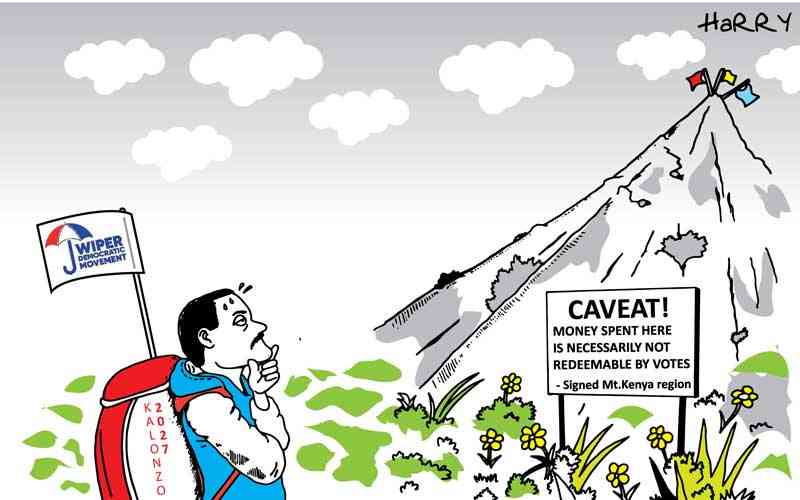My uncle Mzee Matianyi passed on two weeks ago after battling cancer for seven years. It was a fierce battle.
But eventually, the old warrior became weary, and his organs, which had provided covering fire all along, gave up. The lights went off.
The old man’s home is in a sleepy village called Eshilunyire near Butere. That neck of the woods has never seen Genetically Modified (GM) foods derived from Genetically Modified Organisms (GMOs). It is also a safe bet that Mama Jane never cooked and served that stuff to her husband.
Much as I don’t know how he got cancer, I can swear it was not from eating GM foods, just like the granny in my village — and her daughter — who succumbed to the deadly disease earlier this year.
GM foods remain shrouded in mystery. Research is like law — you arrive at a deduction dictated by whoever pays the bill.
So on one hand, you have people saying they are harmless. But then you also have others swearing that GMOs cause cancer, without slapping hard facts on the table.
In recent months, the debate has been vicious. Unfortunately, the people making the loudest noises have been politicians. The few knowledgeable scientists who raised their voices were ignored.
Not too long ago, one of our most eminent sons came to speak on the subject. Internet sources describe Prof Calestous Juma of Harvard University as an “internationally recognised authority in the application of science and technology to sustainable development worldwide”.
In his view, the only way developing countries — indeed the whole world — will manage to feed its growing masses is by turning to technology — read GMOs — to increase food yields. His belief is that GM foods are safe.
A scholar of his stature, who is an expert on the link between science, technology and sustainable development, does not go around saying things he does not know.
Interestingly, in Kenya at least, issues surrounding GMOs have been made the subject of ‘public health’ and not science and technology, now a department in the Ministry of Higher Education, or even Agriculture, which has been splintered so much that it is not even in charge of irrigation.
People opposed to GMOs, and who have successfully petitioned for a Government ban on biotech products, are well meaning. But if they imagine we are going to feed 40 million Kenyans — and rising — on organic foods, they are daydreaming.
Only recently, our sister publication, The County Weekly, ran a story saying there is a shortage of chicken in Western Kenya. Chicken!
Even without factoring in the effects of climate change, land sizes in agriculture-rich areas are becoming too small to feed us, as more and more people migrate to cities.
But unlike the anti biotech food campaigners, the slum dweller, who fears getting killed by stray bullet and thugs, would rather burp on GM food and damn the consequences than die of hunger to avoid getting cancer.
Stay informed. Subscribe to our newsletter
 The Standard Group Plc is a
multi-media organization with investments in media platforms spanning newspaper
print operations, television, radio broadcasting, digital and online services. The
Standard Group is recognized as a leading multi-media house in Kenya with a key
influence in matters of national and international interest.
The Standard Group Plc is a
multi-media organization with investments in media platforms spanning newspaper
print operations, television, radio broadcasting, digital and online services. The
Standard Group is recognized as a leading multi-media house in Kenya with a key
influence in matters of national and international interest.
 The Standard Group Plc is a
multi-media organization with investments in media platforms spanning newspaper
print operations, television, radio broadcasting, digital and online services. The
Standard Group is recognized as a leading multi-media house in Kenya with a key
influence in matters of national and international interest.
The Standard Group Plc is a
multi-media organization with investments in media platforms spanning newspaper
print operations, television, radio broadcasting, digital and online services. The
Standard Group is recognized as a leading multi-media house in Kenya with a key
influence in matters of national and international interest.









